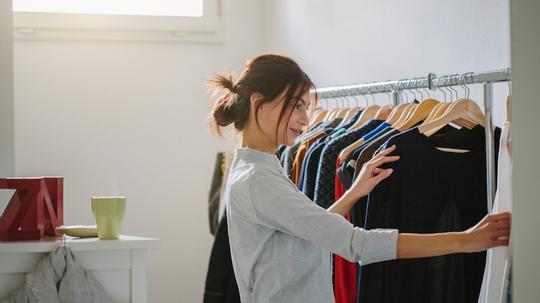
Nestled in an open loft office space in Chicago’s Ravenswood neighborhood, DesignerShare, a startup that lets users rent their high-fashion finds to fellow fashionistas, has been quietly working out the kinks of its operation as it continues to expand nationally.
In addition to its website redesign in August, DesignerShare, a member of 1871’s latest WiSTEM cohort of women entrepreneurs, has added new designers to the site and is in the midst of its seed fundraising round. Sarah Perkins, CEO and co-founder of DesignerShare, declined to say how much the company is aiming to raise.
Right now, the company has interest in renters, but it needs to strengthen the supply side in other markets, Perkins said. The company reportedly aimed to raise $350,000 in its angel round last year, but a seed round would help the company market itself nationally and improve its technology. Perkins confirmed that the company is working on its own app.
Though DesignerShare is primarily a peer-to-peer platform, luxury consignment stores and designers such as Coat Check Chicago, Stevie Boi and Chicago Consignment have rented items directly to consumers. They’ve also had conversations with consignment stores and designers in other cities, too, Perkins said. For consignment stores that are already selling used items, they can earn more money through rentals than one-off sales, she said, adding that the stores can get reports showing their additional rental profits.
“How we present it to more of our B2C users like consignment stores and individual designers is that any pieces that are sitting in these huge warehouses they have can really be kept moving and earning revenue before they’re sold,” Perkins said. “We’re finding that [consignement stores are] earning anywhere from a small few percentage points more of revenue all the way to 70 percent more revenue per item before selling it.”
Since launching in March 2017, the company has grown to three full-time employees and three part-time employees. After kicking off its national expansion last year, the company has received traffic from potential clients in various other cities including New York, Los Angeles, Miami and Dallas.
So far, luxury items are shipped to renters who order outside of Chicago, but the company has tested Lyft deliveries in Chicago, Perkins said, adding that using a rideshare service for deliveries provides peace of mind for the company and the customer. The company has a 1 percent loss rate, she said.
“We love their network and what they stand for,” Perkins said referring to Lyft. “And when we have done it, our users are excited to see it come towards them.”
Aside from providing a better return on investment for luxury goods, the startup also sees itself as a possible anecdote to the fast fashion industry, which has been quick to turn out new, low-quality merchandise, Perkins said. In 2015, 10,530 tons of textiles and 4,480 tons of rubber and leather were discarded in landfills after recycling, composting and combustion, according to a 2018 July EPA report.
“What’s often unsaid is that a lot of consignment stores and charitable outlets wind up having to put a lot of that inventory into landfills,” Perkins said. “You can find a quality piece… And it’s not going to go away. You can hold onto it.”








